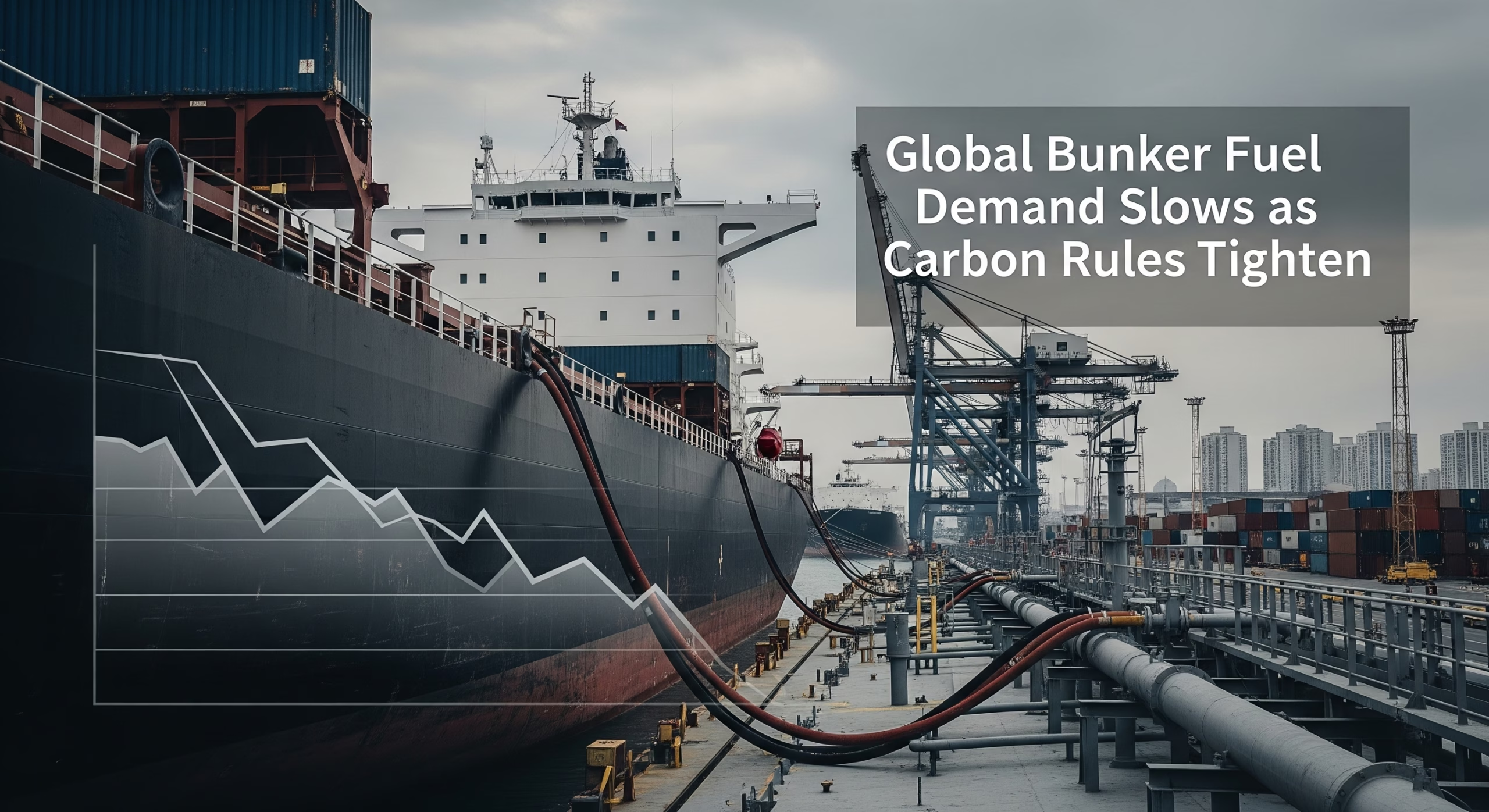Bunker fuel market faces new pressures
The International Energy Agency (IEA) reports that global bunker fuel demand will stay close to 5 million barrels per day between 2024 and 2030. This is a major change for a market that has always grown alongside international trade. The slowdown comes from stricter environmental rules, weak global growth, and improvements in vessel efficiency.
Why bunker fuel demand is slowing
Stricter environmental regulations
The International Maritime Organization (IMO) plans to launch a carbon pricing mechanism in 2028. This will make it more expensive for ships to run on high-emission fuels. The demand for bunker fuel could decrease as shipowners move toward cleaner options like LNG, methanol, or biofuels to stay competitive.
Slower global economy
Weak GDP growth means less cargo to move across oceans, influencing bunker fuel demand overall. Hence, fewer shipments lead to reduced bunker fuel demand, particularly on long-distance routes.
Efficiency gains in shipping
New ships, engine retrofits, and digital tools reduce fuel use per voyage. Although this helps sustainability goals, it also leads to decreased consumption for bunker fuels.
What this means for bunker suppliers
Bunker suppliers must prepare for a changing market. The key impacts include:
- More price volatility as demand shifts between conventional fuels and low-carbon alternatives.
- Regional differences with hubs like Rotterdam and Singapore leading the transition to alternative fuels.
- New opportunities for suppliers who diversify with LNG, biofuels, and methanol, adapting to changing bunker fuel demand.
The future of bunker supply
The IMO carbon pricing framework could become a turning point for the industry. If approved later this year, it will reshape fuel costs and speed up the shift to cleaner energy sources.
For bunker suppliers, the next five years will mean balancing current fuel demand with the transition to new marine fuels. In managing this balance, companies will need to navigate changes in bunker fuel demand for bunkering to strengthen their position in a competitive market.

